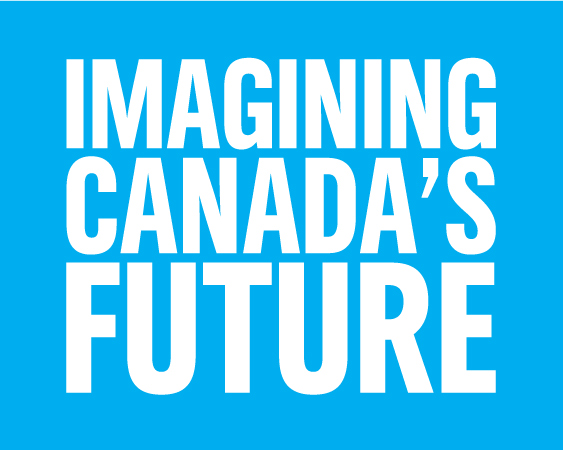Imagining Canada’s Future

More than ever, society is looking to the social sciences and humanities to help understand and mitigate global challenges in the face of change. SSHRC’s Imagining Canada’s Future initiative mobilizes social sciences and humanities research and talent to address future and emerging societal challenges for Canada and help guide decision-making across all sectors, toward a better future.
In 2018, SSHRC partnered with Policy Horizons Canada on a comprehensive horizon-scanning exercise to identify 16 future global challenges that may have a major impact on Canada in the next decade. These global challenges have the potential to shape society in significant ways. All the challenges cross multiple sectors and research disciplines and require broad collaboration to address.
Imagining Canada’s Future Ideas Lab
The Imagining Canada’s Future (ICF) Ideas Lab is an exciting, two-year pilot funding opportunity designed to encourage innovative research partnerships and projects. By breaking down methodological barriers and empowering participants to explore novel approaches to research, the ICF Ideas Lab promotes knowledge sharing and provide foundations for future interdisciplinary projects.
Ideas Lab topics
- Global Health and Wellness for the 21st Century (launched in 2023)
- Canada and the Circular Economy (launched in 2021)
Future Challenge Areas
Action Plan 2022-25
Over these three years, SSHRC will dedicate a series of funding opportunities and stakeholder engagement activities to addressing the following set of four future challenges drawn from the 2018 horizon scan:
- Shifting Dynamics of Privilege and Marginalization
- Evolving Narratives of Cultures and Histories
- Global Health and Wellness for the 21st Century
- Envisioning Governance Systems that Work
Additional funding opportunities will be launched under Action Plan 2025-27 to address three of the remaining future challenges:
- The Changing Nature of Security and Conflict (2025)
- The Arts Transformed (2025)
- Truth under Fire in a Post-Fact World (2026)
SSHRC may also launch additional Knowledge Synthesis Grants competitions on emerging issues in the public interest, in partnership with other government departments and agencies.
Previous action plans and findings
Between 2014 and 2021, SSHRC held a series of Knowledge Synthesis Grants competitions. The results highlighted gaps in current knowledge on global challenges. The research community may, also, be interested in further exploring these. These results are summarized in two page evidence briefs.
Between 2018 and 2021, SSHRC focused its knowledge mobilization efforts on a set of diverse topics associated with the global challenges identified in the 2018 horizon scan. It did so with two types of targeted funding opportunities (Knowledge Synthesis Grants and Ideas Lab Grants), as well as stakeholder engagement activities. Several of the activities were co-funded with other federal departments, agencies or organizations. Partners included NSERC and CIHR, the Impact Assessment Agency of Canada, Infrastructure Canada, the Future Skills Centre, and Employment and Social Development Canada. Five knowledge synthesis grants and one ICF Ideas Lab addressed the following topics:
- Informing Best Practices on Environment Impact Assessments (spring 2019)
- Living Within the Earth’s Carrying Capacity (fall 2019)
- Skills and Work in the Digital Economy (summer 2020)
- Mobility and Public Transit (summer 2021)
- The Emerging Asocial Society (fall 2021)
- Imagining Canada’s Future Ideas Lab: Canada and the Circular Economy (summer 2021, winter 2022)
Knowledge Synthesis Grants results are reported in evidence briefs and can identify knowledge gaps researchers may be interested in further exploring.
From 2014 to 2018, following the extensive foresight exercise that began in 2012, six key future challenges were addressed. Results and research gaps are identified in the summary reports.
How can you contribute to Canada’s future?
Knowledge Synthesis Grants
SSHRC offers Knowledge Synthesis Grants funding opportunities to address a number of future challenges. More information on these funding opportunities and other activities will be made available throughout the year. To learn more about the future challenge areas, check the latest news or connect with the Future Challenges Division.
Evidence briefs
Knowledge Synthesis Grant holders produce two-page briefs to summarize their findings and highlight the policy relevance of their projects. These briefs mobilize research, help inform best practices, and help researchers effectively share information with policy-makers and potential partners in the public, private and not-for-profit sectors.
Collaborate with SSHRC
Engaging with our community and stakeholders enables excellence in research and talent, and in partnerships that inform decision-making across the public, private and not-for-profit sectors. As such, SSHRC invites leaders from these sectors to consider whether one or more of the global challenges might offer an opportunity for collaborations.
For more information on collaborating with SSHRC, contact the Future Challenges Division.
To explore how to connect your organization, department, or business with SSHRC-funded research experts from across Canada, consult SSHRC’s Awards Search Engine.
Recent collaborations

International Policy Ideas Challenge 2024
SSHRC and Global Affairs Canada (GAC) have partnered for the seventh edition of the International Policy Ideas Challenge (IPIC). The challenge provides the authors of winning submissions with an opportunity to transform their ideas into policy briefs.
The call for proposals for the 2024 IPIC competition is open until July 15, 2024.
IPIC is aimed at graduate students and postdoctoral fellows from Canadian postsecondary institutions, as well as recent graduates working at Canadian not-for-profit organizations. Winning entries are awarded $4,000 each. GAC will select between five and 10 winning proposals, and provide coaching to help researchers develop their proposals into full policy briefs. Winners will present their briefs at the virtual Ideas Symposium in late 2024.

The future of knowledge mobilization
SSHRC has partnered with the Canadian Commission for UNESCO and its Network of UNESCO Chairs, as well as Research Impact Canada, to examine promising practices in knowledge mobilization, inclusive knowledge dissemination, and knowledge engagement. Thought leadership papers address how knowledge mobilization can help us confront formidable future challenges (PDF, 12.4 MB) and how the active engagement of Canadian research institutions in these practices can support research impact in Canada and the world.
- Date modified: